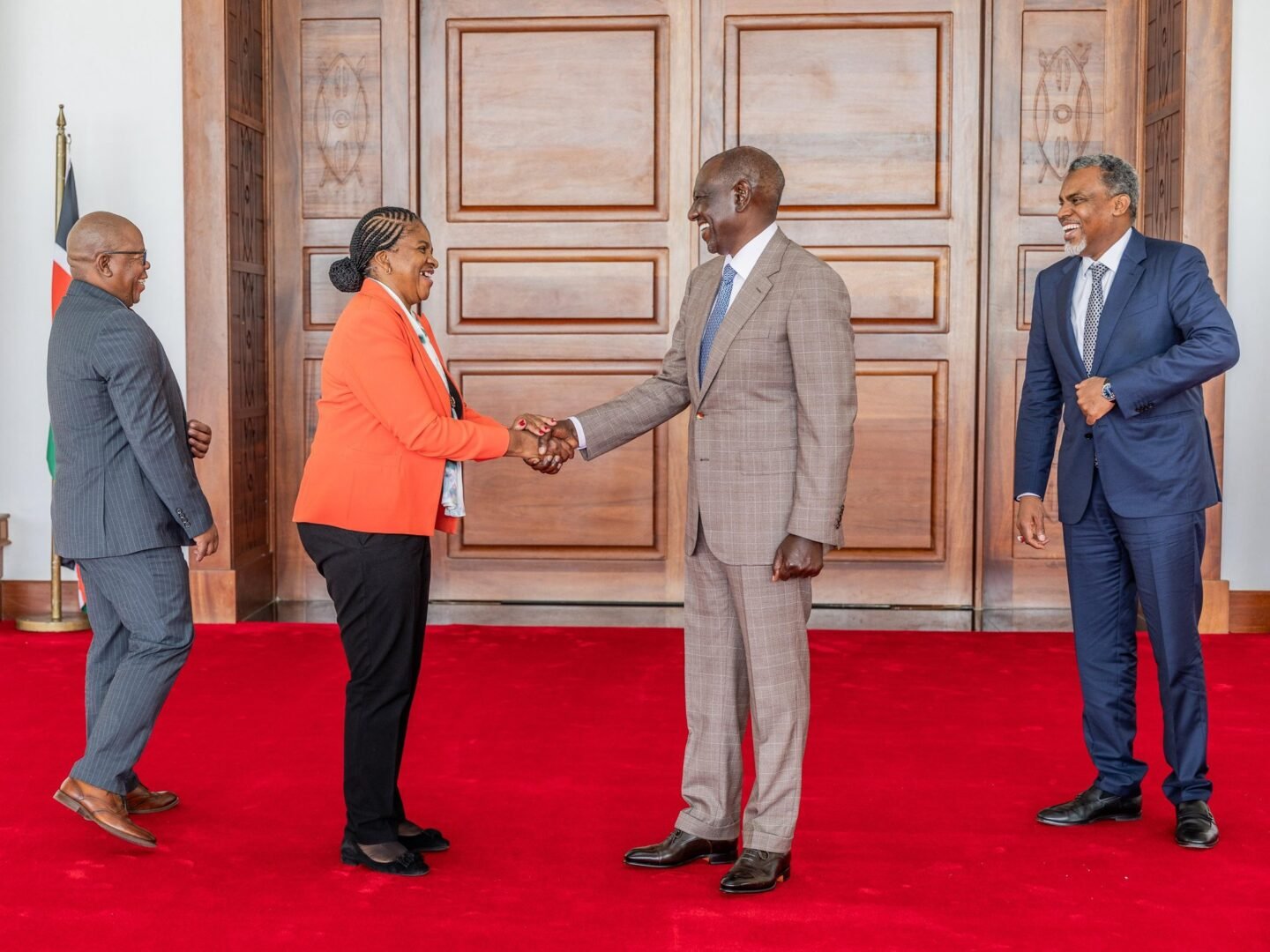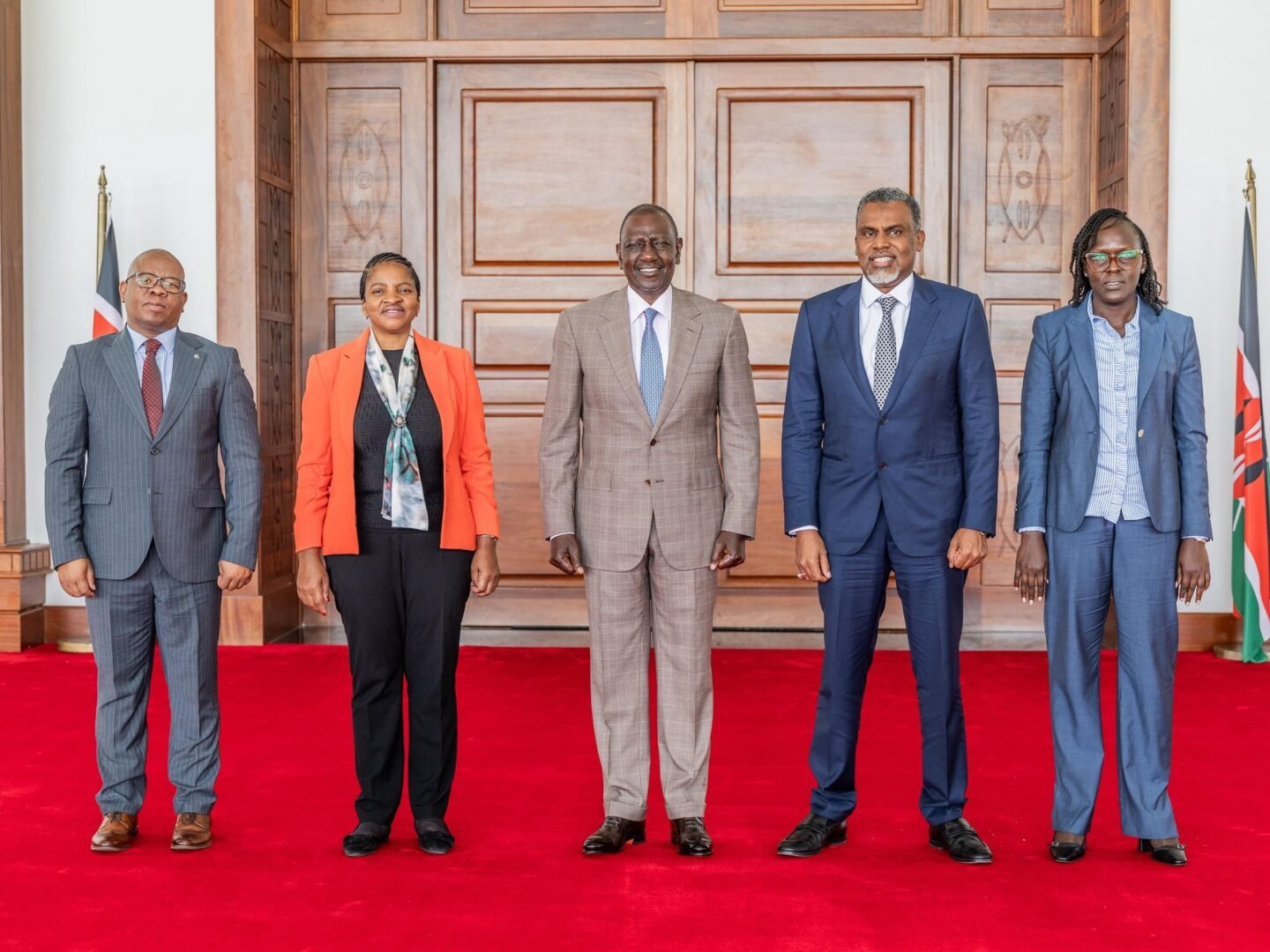NAIROBI, KENYA — President William Ruto has emphasized the critical role of Artificial Intelligence (AI) in bolstering national security and anticipating threats to socio-economic stability across Africa.
Speaking at State House, Nairobi, during a meeting with South Africa’s Acting Director-General of the State Security Agency, Ambassador Gloria Nozuko Bam, President Ruto called for enhanced collaboration among intelligence agencies in the region regarding this emerging technology.
“Artificial Intelligence has become a critical tool in keeping our countries safe and predicting threats that could destroy our socio-economic fabric,” the President stated.
He underscored the necessity for intelligence agencies across Africa to work in close partnership to harness the potential of AI, highlighting its capacity to strengthen security frameworks and preempt potential destabilizing factors.
The meeting focused on strengthening security cooperation between Kenya and South Africa, with a particular emphasis on the integration of AI into intelligence operations. The president’s remarks reflect a growing recognition of AI’s strategic importance in addressing contemporary security challenges within the African context.
Ruto’s statement reflects a broader recognition of AI’s rapid advancements and its growing application in security and intelligence. Modern AI systems, particularly those powered by deep learning, have demonstrated remarkable capabilities in data analysis and pattern recognition.

These systems can process vast datasets from diverse sources, including signals intelligence, open-source intelligence, and cyber threat intelligence, to identify anomalies and predict potential threats with increasing accuracy.
Advancements in natural language processing (NLP) have enabled AI to analyze textual data, identifying sentiment, extracting key information, and detecting potential disinformation campaigns. This is particularly relevant in the context of social media monitoring and threat assessment.
Computer vision, another rapidly evolving field, allows AI to analyze images and videos, enabling applications such as facial recognition, object detection, and anomaly detection in surveillance footage.
AI-driven predictive analytics are also becoming increasingly sophisticated. Machine learning algorithms can analyze historical data to identify patterns and forecast future events, such as crime hotspots or potential terrorist activity. This capability is being utilized in predictive policing and crime prevention.
In cybersecurity, AI is playing a critical role in detecting and responding to cyber threats. AI-powered systems can analyze network traffic in real-time, identifying malicious patterns and anomalies that could indicate a cyberattack. As cyber adversaries increasingly leverage AI, AI-driven defense mechanisms become essential.
However, the rapid advancement of AI also presents potential challenges. Generative AI, for example, can be used to create highly realistic fake news, audio, and video, which can be used to manipulate public opinion and sow discord. The potential for AI-driven cyberattacks also poses a significant threat to critical infrastructure.
Therefore, President Ruto’s call for regional collaboration highlights the need for African nations to work together to develop AI solutions that address the continent’s specific security challenges, while also mitigating the potential risks associated with this technology.
This collaboration could include sharing best practices, developing common standards, and pooling resources for research and development.


